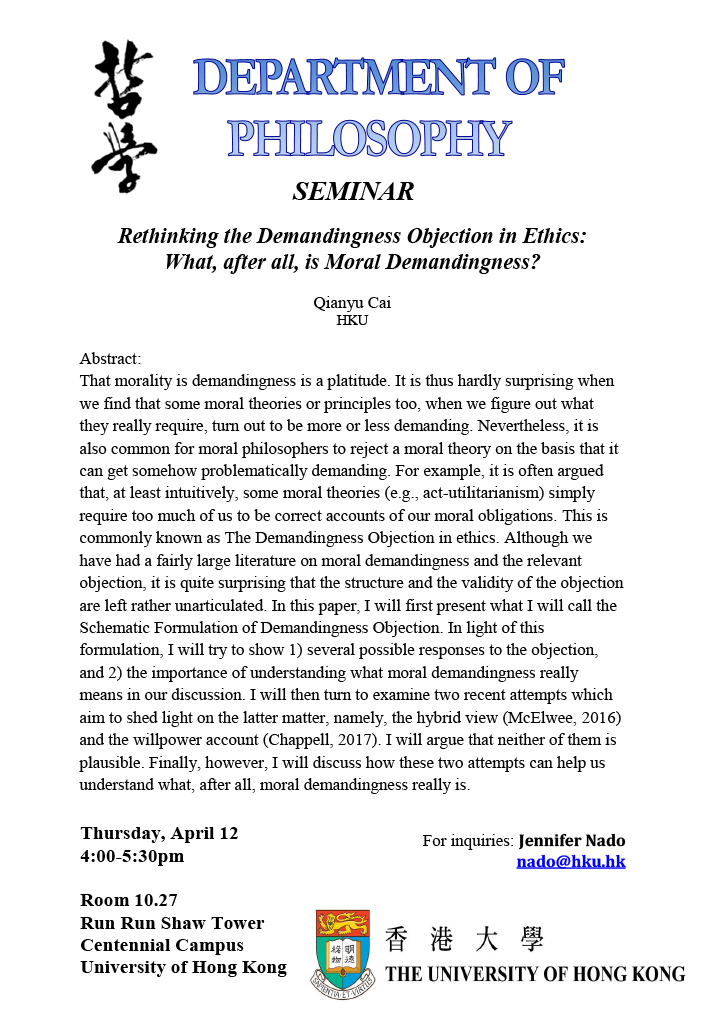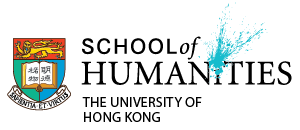
Department of Philosophy
Rethinking the Demandingness Objection in Ethics: What, after all, is Moral Demandingness?
Qianyu Cai
HKU
Abstract:
That morality is demandingness is a platitude. It is thus hardly surprising when we find thatsome moral theories or principles too, when we figure out what they really require, turn out to be more or less demanding. Nevertheless, it is also common for moral philosophers to reject a moral theory on the basis that it can get somehow problematically demanding. For example, it is often argued that, at least intuitively, some moral theories (e.g., act-utilitarianism) simply require too much of us to be correct accounts of our moral obligations.This is commonly known as The Demandingness Objection in ethics. Although we have had a fairly large literature on moral demandingness and the relevant objection, it is quite surprising that the structure and the validity of the objection are left rather unarticulated. In this paper, I will first present what I will call the Schematic Formulation of Demandingness Objection. In light of this formulation, I will try to show 1) several possible responses to the objection, and 2) the importance of understanding what moral demandingness really means in our discussion. I will then turn to examine two recent attempts which aim to shed light on the latter matter, namely, the hybrid vie (McElwee, 2016) and the willpower account (Chappell, 2017). I will argue that neither of them is plausible. Finally, however, I will discuss how these two attempts can help us understand what, after all, moral demandingness really is.
Date: Thursday, April 12
Time: 4:00-5:30pm
Venue: Room 10.27, Run Run Shaw Tower, Centennial Campus, HKU
For inquiries: Jennifer Nado (nado@hku.hk)
